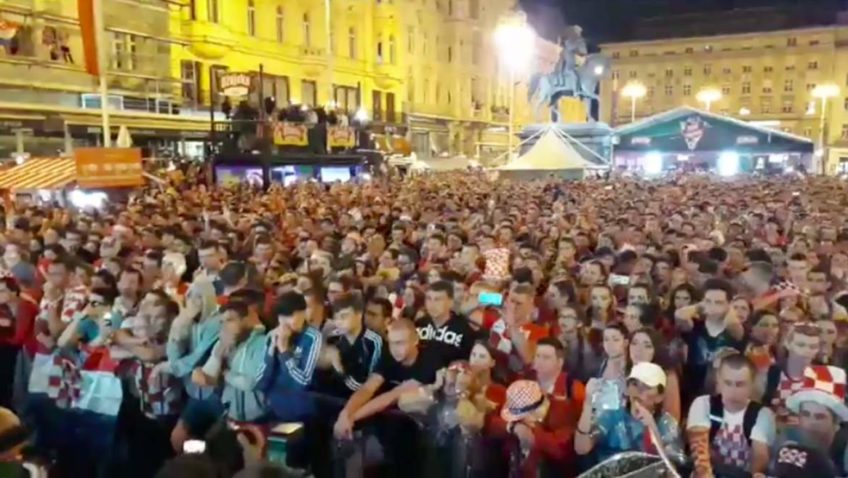Compiled by Hristo Voynov and Eva Jovanova
1. Czechia finally has a ruling coalition, after months of uncertainty. Prime Minister Andrej Babis’ ANO party was able to find a coalition partnership with the Social Democrats featuring the Communist party as observing partners. Now, the second phase of uncertainty begins. As the majority requires the unity of all three parties to reach a majority in any vote, the communists are necessary and important partners for the coalition. Since the full conditions for the support between the three are unknown, some in the opposition are worried about what this coalition will bring.
2. Macedonia received a formal invitation by NATO to join the Alliance once the name deal with Greece is finalized by a referendum this fall. Macedonia will become the 30th NATO member. The alliance had supported Macedonia’s ambition to join as early as 2008, however that decision was blocked by a Greek veto. The prospect of NATO membership might be an important incentive for the citizens to support a name change in a referendum, as NATO and EU membership have been an electoral promise of the two main parties (VMRO-DPMNE and SDSM) for almost two decades now.
3. Europe’s economic ties to Russia and its gas supply were raised during a key NATO summit. Polish President Andrzej Duda brought up the issues of dependence on Russian gas and the need to diversify Europe’s energy supplies. Poland is particularly sensitive to this issue and has raised the issue many times. In particular, the Nord Stream 2 pipeline from Russia to German is considered a threat by many Eastern European countries because they believe such a pipeline would limit the strategic importance of peace in Ukraine, as well as further integrating Russian and German economies, which may limit the ability of NATO to act on Russian aggression. Russia denies this and claims that this integration would lead to peace because of the need for stability.
4. Greece and Russia began a diplomatic war over the name deal with Macedonia. Greece promised to expel two Russian diplomats and ban another two if the allegations proved correct that Russia was supporting opposition parties in Macedonia with their campaign against the name deal. Russia promised to reciprocate with similar measures against Greek diplomats. The name deal paves the way for Macedonia to join NATO and the EU, which will inevitably curtail Russian influence in the Balkans.
5. The EU released a statement criticizing the recent Supreme Court of Moldova decision to null the Chisinau mayoral elections. While this statement is one of many, it carries much more weight than the others, as the EU also froze millions of dollars that it had previously decided to give to the country as part of a financial aid package. This money was intended to help one of Europe’s poorest countries in its efforts to reform its society, but problems over what the EU calls “state capture” of the courts has left the notion that this money would be put to good use in a state of uncertainty.
6. Bosnia commemorated the 23rd anniversary of Srebrenica on Wednesday, July 11. The remains of an additional 35 Srebrenica victims were buried during the ceremony. Around 30.000 people attended the ceremony. The genocide in Srebrenica marks the last genocide on the European continent, where more than 7.000 Bosniaks lost their lives to the Bosnian-Serb forces. The genocide is still wrapped with a lot of controversies, as the genocide happened despite the presence of UN peacekeeping forces.
7. Russian President Vladimir Putin signed counter sanctions into Russian law to respond to recent sanctions from the EU and its allies. These sanctions originate from July 31st 2014, after Russia’s annexation of Crimea. Since then, the renewal of these sanctions or implementation of further sanctions has become almost a ritual occurrence. Removal of these sanctions is contingent on Russia giving Crimea back to Ukraine, which Russia has vehemently stated that it would not do.
8. During Erdogan’s inauguration on Monday, there was a strong Balkan/East European presence. Among the 22 presidents who attended it were the presidents of Presidents of Bulgaria (Rumen Dadev), Georgia (Giorgi Margvelashvili), Macedonia (Gjorgje Ivanov), Moldova (Igor Dodon), Bosnia and Herzegovina (Bakir Izetbegovic), Serbia (Aleksandar Vucic) and Kosovo (Hashim Thaci). The prime ministers of Albania (Edi Rama), Hungary (Viktor Orban) and Russia (Dimitry Medvedev) also attended the ceremony. Silvio Berlusconi and Gerhard Schröder were among the “special guests”.
9. Ukraine has approved a new anti-corruption court as part of its efforts to secure a major $17.5 billion aid package in exchange for reforms. While this is an important step, it is only one of many that would be needed for the IMF to decide that Ukraine has taken enough steps to secure the aid. It would also need to raise gas prices to meet the market level, and restrain its budget to a manageable level. While the move to stop corruption is important, the implementations of these anti-corruption laws are subject to political decisions as well. Just recently, the Chief of the Prosecutor General’s Office disbanded and then replaced various parts of its office with identical structures, meant to split“ the structural units that carry out pre-trial investigation and procedural control of the pre-trial investigations” which were working on crimes from the Euromaidan protests.
10. Montenegro will deploy troops on the Russian border to Latvia and Poland as part of a NATO mission. The Ministry of Defense of Montenegro stated that their troops would join the Slovene Army unit deployed on the Latvian side of the border, who have been located there since 2017. Canada is the leader of the operation. An additional two logistics officers will join the NATO Battle Group in Poland. Since 2017, there are four multinational NATO battle groups in Estonia, Latvia, Lithuania and Poland which total approximately 4.500 troops.


0 comments